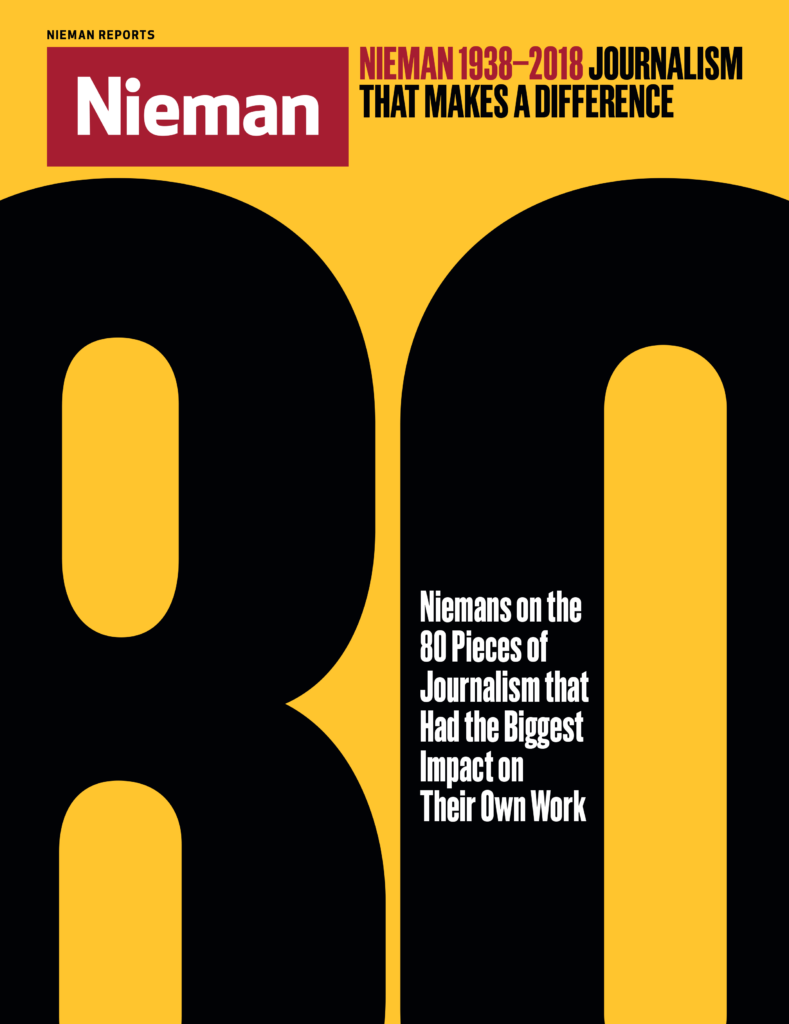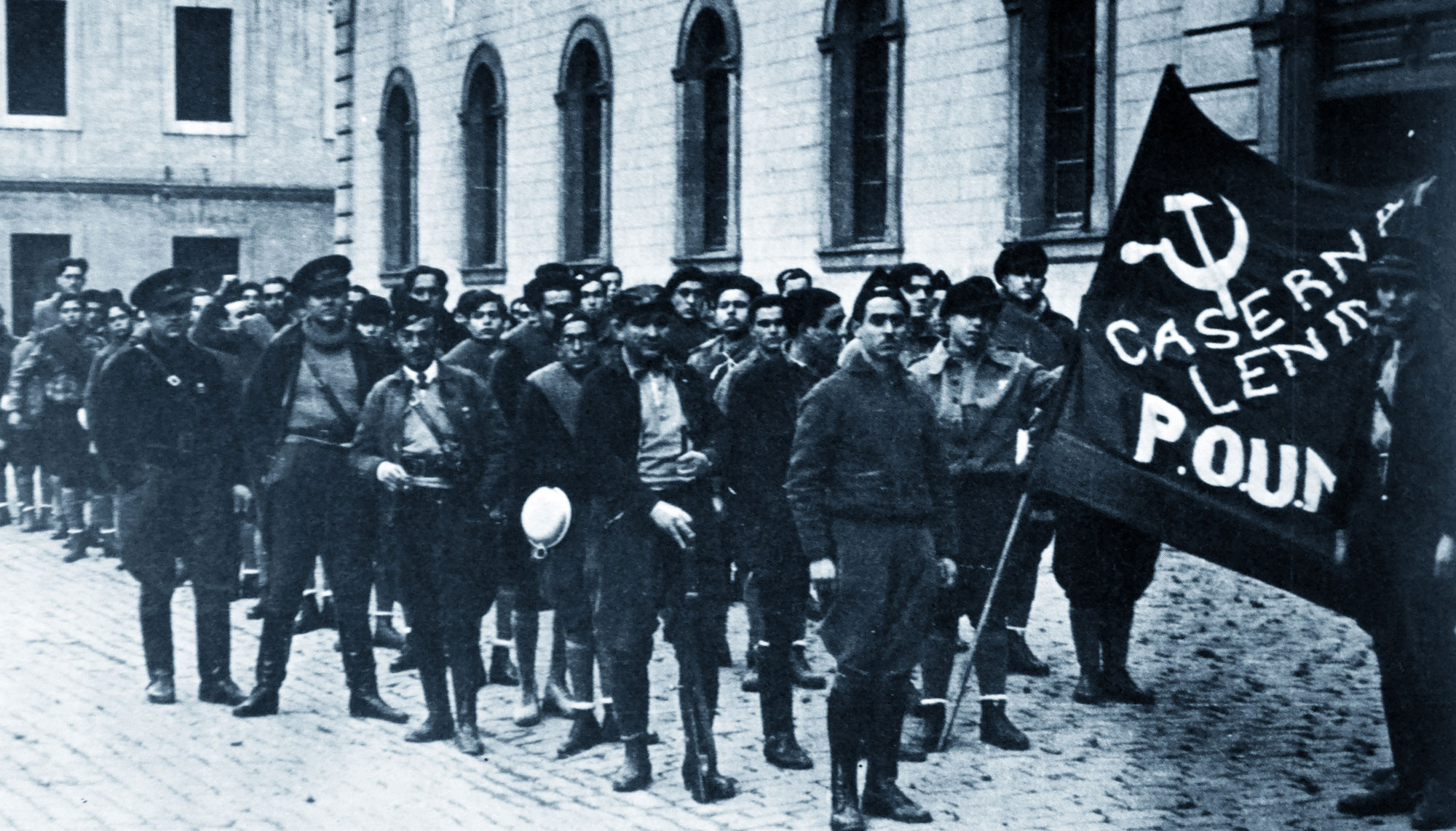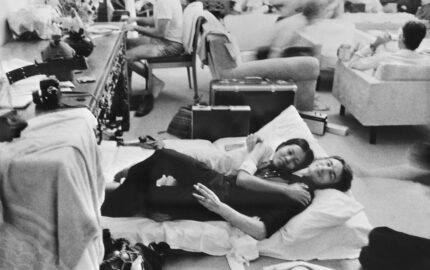
How are great journalists made? Often, it’s pieces of great journalism that help form them, influencing their lives or careers in an indelible way. To celebrate the Nieman Foundation for Journalism’s 80th anniversary in 2018, we asked Nieman Fellows to share works of journalism that in some way left a significant mark on them, their work or their beat, their country, or their culture. The result is what Nieman curator Ann Marie Lipinski calls “an accidental curriculum that has shaped generations of journalists.”
Comic strips in the newspaper were my entry drug into journalism when I was a child in the 1980s. I then begin experimenting with baseball box scores, and by the time I was 11 or 12 I had developed an addiction from which I would never be able to extricate myself.
But if I had to pick one piece of journalism that made a difference to me, I would choose “Homage to Catalonia” by George Orwell. Published less than a year after Orwell left Spain, when the civil war there still raged, it has the immediacy of traditional journalism, and it’s valuable
for that: Orwell attempts to be an honest observer in the face of enormous social pressure to toe one line or the other. And with the passage of time we know he got a lot right. But what endures more than that is the intimacy of his portrayal of men in that war, at that time and place: the filth and boredom, but also the generosity and comradeship.
He does this with a fine eye for detail and anecdote, but also because he doesn’t disguise his affection for those he writes about. There are scenes and passages I can recall easily from memory, and there are few books I return to as often.
Homage to Catalonia
By George Orwell
Secker and Warburg, 1938
Excerpt
In the Lenin Barracks in Barcelona, the day before I joined the militia, I saw an Italian militiaman standing in front of the officers’ table.
He was a tough-looking youth of twenty-five or six, with reddish-yellow hair and powerful shoulders. His peaked leather cap was pulled fiercely over one eye. He was standing in profile to me, his chin on his breast, gazing with a puzzled frown at a map which one of the officers had open on the table.
Something in his face deeply moved me. It was the face of a man who would commit murder and throw away his life for a friend—the kind of face you would expect in an Anarchist, though as likely as not he was a Communist. There were both candour and ferocity in it; also the pathetic reverence that illiterate people have for their supposed superiors. Obviously he could not make head or tail of the map; obviously he regarded map-reading as a stupendous intellectual feat. I hardly know why, but I have seldom seen anyone—any man, I mean—to whom I have taken such an immediate liking.
Excerpt from HOMAGE TO CATALONIA by George Orwell. Copyright © George Orwell, 1936. Reprinted by permission of Bill Hamilton as the Literary Executor of the Estate of the Late Sonia Brownell Orwell. Copyright © 1952 and renewed 1980 by Sonia Brownell Orwell. Reprinted by permission of Houghton Mifflin Harcourt Publishing Company. All rights reserved.



